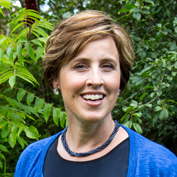Guest Post by Marilyn Evans. This post was first published on Parents Aware on January 5, 2017.
When Gary Wilson described internet pornography “as the fastest moving, most global experiment ever unconsciously conducted” he was spot on. Our school system, as it stands now, is unwittingly encouraging students to join the experiment!
Hold on to your seat because it’s time for me to rant! Please imagine I am shouting this entire post though I will spare you the ALL CAPS!
More and more research is confirming that porn tops the list of highly addictive substances. It has the ability to rewire the brain and deteriorate growth in the prefrontal cortex. Children are especially vulnerable. Yet, schools remain unwilling to give students a basic definition of pornography, teach them why it is harmful, or give them tools and strategies to help them reject pornography when they are exposed to it.
Here are a few of the points that should be acknowledged by school boards when developing curriculum:
- The brain responds to pornography similar to the way it responds to hard drugs.
- Overcoming pornography addiction has proven more difficult than overcoming an addiction to crack cocaine.
- Porn Induced Erectile Dysfunction (PIED) has increased 1000% in the past 10 years and is affecting younger and younger males each year.
- Pornography supports violence against women.
- Younger users of pornography are more apt to mimic deviant sexual behaviours shown in pornography.
Over the last several months I have come to the sad realization that most school staff and administrators don’t have a clue about the harms of pornography as it relates to children. Scary stuff when you consider the average age of first exposure is between eight and eleven years of age.
What’s worse than having the school board ignore the issue of childhood exposure to online pornography? How about teachers who introduce a discussion on pornography in the classroom but fail to put it in context of the above-mentioned concerns? Ask a child, eleven and up if they remember a teacher talking about pornography in Health class. Their answer probably will go something like this:
“Oh ya, for sure! My teacher told us that we would see pornography soon, if we hadn’t already. We were told we shouldn’t feel bad if we like to look at porn. It’s very normal to be curious about sex. Many people use pornography regularly.”
Now I want you to ask that same child if their teacher happened to talk about the correlation between the porn industry and human trafficking? Did the teacher at least mention that pornography promotes violence against women and endorses a rape-myth culture in our society? What about how pornography has been scientifically proven to affect brain development? NO?! Curious!
Teachers know that the urge to blend in and belong is very strong for pre-teens and teens, but the development of sound reasoning skills is still a few years off. So when an authority figure informs this age group that using porn is normal, then those who have not had experience with it will most likely feel awkward or abnormal. You may as well give your class an assignment to Google “SEX” and report their findings the next day.
No wonder Canadian researcher Simon Lajeunesse, PhD, claims, “most boys seek pornography by age 10.” Why not? They are being encouraged to do so in their public school Health class!
To highlight how unconscionable it is for schools to address pornography in such a casual and careless fashion, let’s imagine treating the discussion of other addictive and potentially abusive substances in our public schools with the same attitude.
Cigarettes
Teacher: “You will probably be exposed to cigarettes. It’s normal. Many people smoke. You may end up smoking one day too.”
We would never dream of discussing cigarette use without attaching a huge warning label to it. Nicotine addiction, lung cancer, stroke, heart attack and the impact of secondhand smoke would be at the top of the list.
Alcohol
Teacher: “You will probably be exposed to alcohol sometime soon, if you haven’t already. Many people drink alcohol. It’s normal. You may end up trying alcohol one day too.”
Interestingly, there is nothing false about the above statement but it sure is missing some key information!
What are the dangers associated with underage drinking? If we want our children to make informed decisions about alcohol consumption, then it’s only fair to teach them about its addictive properties, the impact of impaired driving, and at least a word or two that alcohol consumption significantly increases the risk of serious accident, death, physical assault and sexual abuse.
Drugs
Teacher: “You may be exposed to hard drugs, like cocaine, heroin or prescription opiates in the next few years; but not to worry many people consume these substances. It’s normal. You too may eventually turn to drugs as a way to cope with emotional and physical pain. Or perhaps you will enjoy drugs purely for recreation.”
Of course this is absurd! You can’t EVEN imagine anyone today talking about drugs so carelessly.
We all agree that introducing the topic of cigarettes, alcohol, and illicit drug consumption to children and teens without including a warning of their potential harm is both irresponsible and unethical. But every year we throw ethics out the window while trying to explain pornography to each new generation of 10 and 11 year-olds and tell them that viewing pornography is normal and even healthy.
I don’t disagree that this is a relevant topic for Health class, but please get the facts straight and stop unconsciously experimenting with our children.
What can you do?
Email, write or call your School Trustee, Principal and government policy makers. Help schools recognize they have an ethical responsibility to teach students how to define pornography, label it as an addictive substance and teach students the risks associated with pornography use.
Tell them you understand that elementary school age children are frequently exposed to online pornography but do not have a safe framework or context in which to place that exposure. Let them know you expect schools in your area to take a proactive stance in addressing the subject of pornography in the classroom by inform students of the risks —just as they would any other controlled and potentially harmful substance. For ideas and resources on how to talk to teachers and school administration, please visit here and here.
Then write to us at ParentsAware and let us know what kind of response you receive back. As we continue to build this community together, it’s our goal to support one another as we all work towards the same objective. We hope that you can continue to look to the community for ideas, support and success stories.
Marilyn Evans is founder of ParentsAware.info an organization dedicated to helping families have solution focused discussions about pornography. Marilyn has an educational background in family communications and believes that even the most difficult conversations can be made easy. She loves to share her own experience and fascinating conversations with other parents via her blog, and live speaking presentations. Marilyn lives east of Toronto with her husband and five sons. You can follow Marilyn on Facebook, Twitter and Instagram


Comments 1
A teacher in our school tried to teach high school age’s students the dangers of porn but started by disclosing his own history of porn addiction. Unfortunately, that was all the students heard or could think about, so the lesson was lost. Self disclosure should not be the first thing out of a teacher’s mouth…if ever even shared.